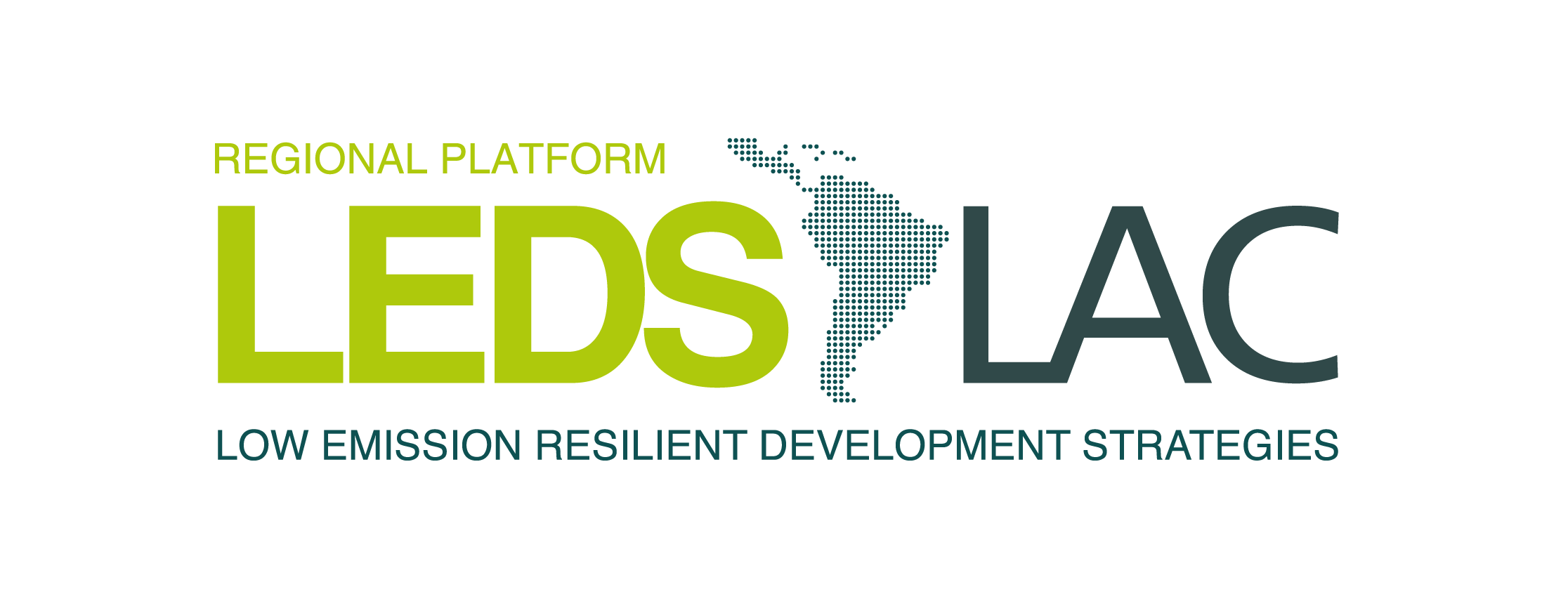Day: Wednesday January 24th2018[/fusion_li_item][fusion_li_item icon="fa-clock-o"].
Time: 9:00-10:30 am CST (time in Costa Rica)[/fusion_li_item][fusion_li_item icon="fa-check"]
Check the webinar time according to your location: http://bit.ly/2DdiDwV[/fusion_li_item][/fusion_checklist][fusion_separator style_type="none" top_margin="" bottom_margin="" sep_color="" border_size="" icon="" icon_circle="" icon_circle_color="" width="" alignment="" class="" id=""/][fusion_text]
Agenda
Introduction. Ana María Majano. Coordinator of the Secretariat, LEDS LAC Platform.
Assessing politically-feasible decarbonization pathways. Adrien Vogt-SchilbClimate Change Economist, InterAmerican Development Bank. | Download presentation
Implications of the Paris Agreement for Stranded Assets. James Edmonds. Chief Scientist and Battelle Fellow, Joint Global Change Research Institute (University of Maryland and Pacific Northwest National Laboratory). | Download presentation
Implications of the Paris Agreement for Stranded Assets in the Latin America and Caribbean Power Sector: A Preliminary Analysis. Gokul Iyer. Engineer, Joint Global Change Research Institute. | Download presentation
About the webinar
The Paris Agreement establishes the objective of "holding the increase in the global average temperature to well below 2°C above pre-industrial levels and pursuing efforts to limit the temperature increase to 1.5°C". As part of the Agreement, virtually all countries across the globe have submitted nationally determined contributions (NDCs) that set goals to reduce greenhouse gas emissions through 2030. Previous research has found that achieving such stringent long-term temperature goals could entail pre-mature write-downs or retirements of carbon-intensive assets, referred to as "stranding" of assets.
This webinar explores the issue of stranded assets in Latin America and the Caribbean that could follow from the implementation of policies and measures under the Paris Agreement. The assessment employs the Global Change Assessment Model (GCAM), a global multi-scale, multi-sector, human-physical Earth system model with regional detail in LAC.
The webinar will be held in Español. If you have any questions about this event, please contact the Secretariat of the LEDS LAC Platform: [email protected].
About the panelists
[/fusion_text][/fusion_builder_column][fusion_builder_column type="1_1″ background_position="left top" background_color="" border_size="" border_color="" border_style="solid" spacing="yes" background_image="" background_repeat="no-repeat" padding="" margin_top="0px" margin_bottom="0px" class="" id="" animation_type="" animation_speed="0.3″ animation_direction="left" hide_on_mobile="no" center_content="no" min_height="none"][fusion_content_boxes settings_lvl="parent" layout="icon-on-side" columns="1″ icon_align="left" title_size="" title_color="" body_color="" backgroundcolor="" icon_circle="" icon_circle_radius="" iconcolor="" circlecolor="" circlebordercolor="" circlebordercolor="" circlebordersize="" outercirclebordercolor="" outercirclebordersize="" icon_size="" icon_hover_type="" hover_accent_color="" link_type="" link_area="" link_target="" animation_delay="" animation_offset="" animation_type="0″ animation_direction="left" animation_speed="0.1″ margin_top="" margin_bottom="" class="" id=""][fusion_content_box title="Adrien Vogt-Schilb" icon="" backgroundcolor="" iconcolor="" circlecolor="" circlebordercolor="" circlebordersize="" outercirclebordercolor="" outercirclebordercolor="" outercirclebordersize="" iconrotate="" iconspin="no" image="https://ledslac.org/wp-content/uploads/2018/01/01/id_.jpg" image_width="130″ image_height="130″ link="" linktext="" link_target="_self" animation_type="" animation_direction="" animation_speed=""]Adrien is a climate change economist at the Inter-American Development Bank. His work focuses on the design of effective and politically-acceptable emission-reduction policies: how to align NDC implementation with local development goals and the long-term decarbonization imperative while navigating the political economy. Adrien is a trained engineer, holds a PhD in climate economics and is the author of 3 books and many academic papers.[/fusion_content_box][fusion_content_box title="James Edmonds" icon="" backgroundcolor="" iconcolor="" circlecolor="" circlebordercolor="" circlebordersize="" outercirclebordercolor="" outercirclebordercolor="" outercirclebordersize="" iconrotate="" iconrotate="" iconspin="no" image="https://ledslac.org/wp-content/uploads/2018/01/jedmonds.jpg" image_width="130″ image_height="130″ link="" linktext="" link_target="_self" animation_type="" animation_direction="" animation_speed=""]He is a Chief Scientist and Battelle Fellow at the Joint Global Change Research Institute (JGCRI). His research in the areas of long-term, global, energy, economy, and climate change pathways spans three decades, during which he published several books, numerous scientific papers and made countless presentations. Dr. Edmonds has served as a Lead Author on every major IPCC assessment to date, and serves on numerous panels and advisory boards related to energy, technology, the economy and climate change.[/fusion_content_box][fusion_content_box title="Gokul Iyer" icon="" backgroundcolor="" iconcolor="" circlecolor="" circlebordercolor="" circlebordersize="" outercirclebordercolor="" outercirclebordercolor="" outercirclebordersize="" iconrotate="" iconspin="no" image="https://ledslac.org/wp-content/uploads/2018/01/gokul_iyer.jpg" image_width="130″ image_height="130″ link="" linktext="" link_target="_self" animation_type="" animation_direction="" animation_speed=""]He is a scientist at the JGCRI. Dr Iyer's research focuses on investigating issues at the intersections of energy, land, water using multi-sector multi-scale human-Earth system models. Currently, he coordinates the development and application of a state-level model of the U.S. (GCAM-USA) embedded within a global human-Earth system model (GCAM).[/fusion_content_box][/fusion_content_boxes][fusion_separator style_type="none" top_margin="" bottom_margin="" sep_color="" border_size="" icon="" icon_circle="" icon_circle_color="" width="" alignment="" class="" id="" id=""/][fusion_text][fusion_text]
Additional Resources
[/fusion_text][/fusion_builder_column][fusion_builder_column type="1_1″ background_position="left top" background_color="" border_size="" border_color="" border_style="solid" spacing="yes" background_image="" background_repeat="no-repeat" padding="" margin_top="0px" margin_bottom="0px" class="" id="" animation_type="" animation_speed="0.3″ animation_direction="left" hide_on_mobile="no" center_content="no" min_height="none"][fusion_content_boxes settings_lvl="parent" layout="icon-on-side" columns="1″ icon_align="left" title_size="" title_color="" body_color="" backgroundcolor="" icon_circle="" icon_circle_radius="" iconcolor="" circlecolor="" circlebordercolor="" circlebordercolor="" circlebordersize="" outercirclebordercolor="" outercirclebordersize="" icon_size="" icon_hover_type="" hover_accent_color="" link_type="" link_area="" link_target="_blank" animation_delay="" animation_offset="" animation_type="0″ animation_direction="left" animation_speed="0.1″ margin_top="" margin_bottom="" class="" id=""][fusion_content_box title="" icon="" backgroundcolor="" iconcolor="" circlecolor="" circlebordercolor="" circlebordercolor="" circlebordersize="" outercirclebordercolor="" outercirclebordersize="" iconrotate="" iconspin="no" image="https://ledslac.org/wp-content/uploads/2018/01/Climate-Policies-and-Nationally-Determined-Contributions-Reconciling-the-Needed-Ambition-with-the-Political-Economy-pdf-791×1024.jpg" image_width="130″ image_height="130″ link="https://publications.iadb.org/handle/11319/8319″ linktext="Climate Policies and Nationally Determined Contributions Reconciling the Needed Ambition with the Political Economy" link_target="_self" animation_type="" animation_direction="" animation_speed=""][/fusion_content_box][/fusion_content_boxes][/fusion_builder_column][/fusion_builder_row][/fusion_builder_container]
